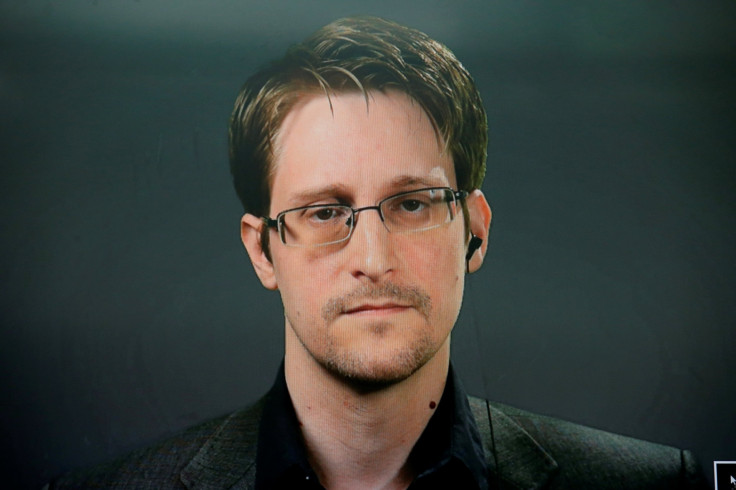Will President Obama Pardon Edward Snowden? Whistleblower vs. Traitor Debate Raises Questions

Edward Snowden roiled the U.S. intelligence community when he stole documents from the National Security Agency and turned them over to reporters and WikiLeaks. He’s been on the run for three years and holed up in Russia, the antithesis of the transparency he said he was championing.
The release so outraged the public and public officials that the NSA was forced to change the way it collects information, to be more transparent and to better explain itself.
Will President Barack Obama pardon Snowden before leaving office in January? Doubtful. The company line has been Snowden should return to the United States to face espionage charges first. Former U.N. Ambassador James Bolton has said Snowden “ought to swing from a tall oak tree” for his actions.
The American Civil Liberties Union, Amnesty International and Human Rights Watch mounted petition drives in September supporting a Snowden pardon. But the justifications listed by these groups ignored the tens of thousands of documents released by the former NSA contractor that had nothing to do with domestic email and privacy.
White House spokesman Josh Earnest said the White House does not consider Snowden a whistleblower. And lawmakers on both sides of the aisle have called Snowden a traitor.
“Edward Snowden is not a whistleblower,” Earnest told reporters. “There actually is a specific process that is well-established and well-protected that allows whistleblowers to raise concerns that they have, particularly when it relates to confidential or classified information, to do so in a way that protects the national security secrets of the United States. That is not what Mr. Snowden did. And his conduct put American lives at risk, and it risked American national security.”
Democratic presidential candidate Hillary Clinton indicated during the primaries she does not favor a pardon before Snowden returns to the United States to face charges. Republican Donald Trump in 2013 called Snowden “a bad guy” and suggested he be executed as a traitor.
The American Civil Liberties Union has called Snowden “a great American.”
“When Snowden blew the whistle on the NSA, he single-handedly reignited a global debate about government surveillance and our most fundamental rights as individuals,” the ACLU wrote on its blog. The civil liberties group has so far collected more than 59,000 signatures on its petition.
Snowden “a hero not a traitor,” Amnesty International has said.
“His courage changed the world. He sparked a global debate, changing laws and helping to protect our privacy. Edward Snowden is a human rights hero, yet he faces decades in prison under charges that treat him like a spy who sold secrets to enemies of the USA,” Amnesty International said.
Snowden has justified his actions by saying he took an oath to uphold the Constitution, saying it’s not a secrecy oath.
Anthony Kimery, editor-in-chief of Homeland Security Today.us, said the fact Snowden did not attempt to go through official channels to right what he saw as wrongs disqualifies him as a whistleblower.
The House Intelligence Committee concluded earlier this year Snowden “caused tremendous damage to national security” since the majority of his documents dealt with military, defense and intelligence programs that had little to do with individual privacy.
Jack Goldsmith, a Harvard University law professor, said he doesn’t think the president should or will pardon Snowden. Goldsmith said the extent of the damage caused by Snowden’s disclosures remains elusive because the intelligence community is loath to release specifics, and the Justice Department is preserving its case. It’s also unclear on what criteria a pardon could be based, he said, adding a pardon would demoralize the intelligence agents.
“Pardoning the perpetrator of the most damaging leak by far in American history would send a clear signal of approval for what Snowden did and a clear signal about a lack of seriousness on the part of the government about its truly most important secrets,” Goldsmith said.
Anthony Romero of the ACLU argues Snowden’s case is an example of why the pardon power exists. He said pardoning Snowden would allow Obama to “acknowledge that the government did wrong.”
© Copyright IBTimes 2024. All rights reserved.






















